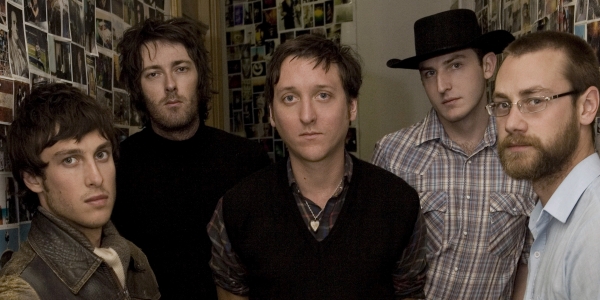Laffer draws creative strength from the world around him in an unashamedly natural and child-like manner, delighting in the sounds of the world at large. “You get a general feeling over time when you’ve had a life in writing,” he says. “You gain perspectives on situations and atmospheres, that’s when you have fertile periods of making stuff.”
With four years between their last release and their new album Hole In Your Pocket, The Panics is evidently a band that don’t like to rush things. Laffer argues that time to stew on a work is necessary, an important part of a practice that sees the group only put out work they’re proud of. “The Panics have had a few years break between records and I can feel a far busier period coming along. I have a plan for the next few years in the writing department: write lots, record lots and give it away,” Laffer says.
“The cool thing about the album in one respect is that by having a few years off, it means the record has got a pretty good energy. It’s relentless the whole time, so it’s exciting to come back firing hard both in terms of purpose and meaning. I’m looking forward to communicating the songs to people. We want to start small, we want to play to sweaty clubs and I think these songs are going to play pretty easily to that environment. The whole album is really.”
Though the band are currently experiencing a creative renaissance, it wasn’t that long ago that they felt as though they were running low on steam, unable to produce much fruitful work. “We had a very busy first decade of our life with the band and then we had periods where we felt maybe we were treading on old ground,” says Laffer.
“We live creative lives and it’s not always about music, some of the guys do art. I’m the same. It’s really about the energy and the time. It’s about when we feel like we have something to say. For me it might be a certain pile of lyrics that comes along and that’s the time to work. We’ve been really busy at certain times but it’s only from a careerist perspective. Sometimes you veer off but we use our instruments to create when the time is right.”
As Laffer tells it, “veering off” from songwriting and embarking on other endeavours was necessary for the The Panics’ musical wellbeing and ultimately assisted the fresh, funky new feel of Hole In Your Pocket.
“A painter might not always want to be working on another oil painting, so for me, I spent a couple of years working on stories, working on a book. It’s just a thing that can take up my time. You realise you’re gravitating toward things that aren’t writing songs, you have no choice in the matter but to appease what your overall sense of wellbeing requires.”
Laffer is fascinated by the interest others show towards his writing habits, and speaks in tones of amused disbelief when discussing how he crafts songs. “People want to know how you write stuff. They’re always curious about how it comes about for me. It’s such a loose mysterious thing, most songwriters hardly remember the song coming together. It’s a lifestyle of writing a bit and meditating then suddenly you’re drifting off. You can find yourself talking about it but it never feels quite right.”
To that end, Laffer allows inspiration to lead him rather than the other way around, and particularly while writing Hole In Your Pocket felt it was important to take the most relaxed attitude possible. That kind of effortlessness has manifested itself powerfully on the record, one that reeks of a kind of unforced ease.
“In some ways it was about avoiding [our] normal struggles. The way we found of making it was to write and record it in the backshed of one our houses. It was all about zero struggle, zero pressure. It was about recording those first takes and being happy with the vocal, not cringing at what we were creating. There was no part of it that was a struggle.
“I don’t really tolerate struggle these days. The only time people struggle is when they are trying to make hits, with unfair pressure on them. Making noise, there’s no struggle in that.”
BY ANNA WILSON







